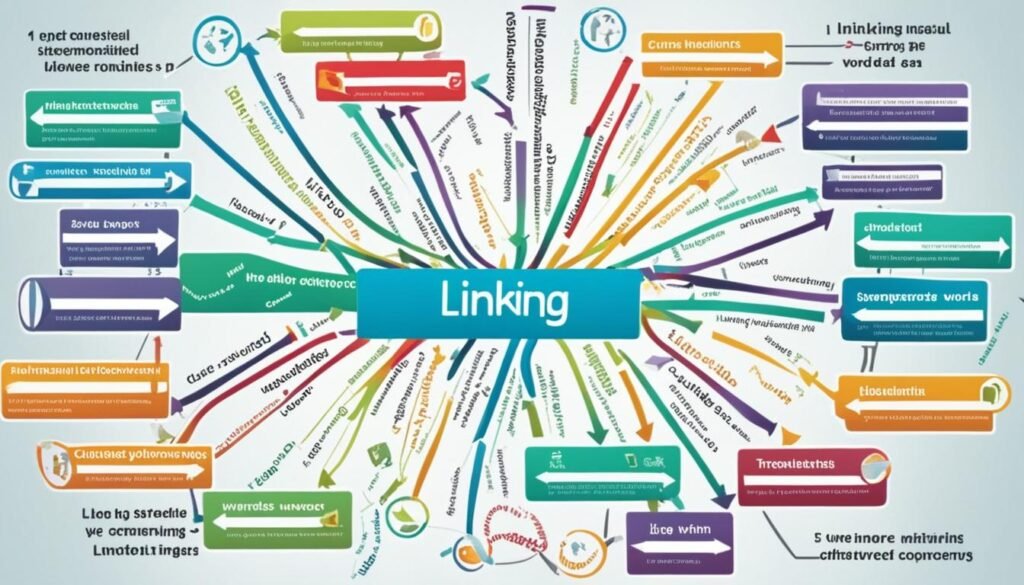The Ultimate Guide To IELTS Speaking Part 3
As you approach the crescendo of the IELTS speaking test, have you considered how Part 3 might just be the decisive moment between a good and a great band score? Unlike the personal nature of IELTS Speaking Part 1, or the individual long turn of Part 2 of the IELTS, Part 3 propels you into the realm of abstract thinking and discussion. It’s where your proficiency is not just about communication, but also about the ability to critically analyse and articulate complex ideas.
In this ultimate IELTS Speaking Part 3 guide, you’ll unwrap the layers of this final segment and discover how to not just participate in, but to excel at this discussion-based test. From understanding why this part is more than a mere conversation, to uncovering the strategies to ace the IELTS, you’ll find your pathway to a band score that truly reflects your command of the English language.
Let’s dive deeper and deconstruct what it takes to demonstrate the higher-order thinking skills that Part 3 of the IELTS encompasses. Here’s where your ability to justify opinions, discuss various topics, and engage in nuanced speculation comes under the spotlight. By the end of this segment, you’ll join the league of confident communicators ready to tackle the highest echelons of the IELTS exam.
Key Takeaways
- Grasp the essential differences between the parts of the IELTS Speaking test, focusing on Part 3.
- Discover techniques to leverage abstract thinking skills and critical discussion in IELTS Speaking Part 3.
- Understand how to extend and enhance responses to showcase the depth of your English language proficiency.
- Learn the significance of varied vocabulary and grammar for achieving a top band score in the IELTS exam.
- Embrace the importance of practice and feedback to refine your responses and ensure a smooth, fluent conversation.
Mastering the Art of Answers in IELTS Speaking Part 3
As you venture further into Part 3 of the IELTS Speaking test, it’s time to transform your responses from good to great. This is where your capacity to articulate more developed answers becomes instrumental in achieving a higher band score. It’s essential to not only provide an answer but to extend your answers, showcasing your fluency and command of the English language.
Techniques to Extend Your Answers
Extending your answers involves more than just talking for a longer period of time. It’s about enriching your response to show the depth of your thoughts. Begin by paraphrasing the examiner’s question, this way you immediately demonstrate both vocabulary and a wider range of grammar. Next, delve into the reasons behind your opinions, providing ample explanation that adds substance to your speaking.
For instance, if asked about the impact of technology, you might compare and contrast the benefits and drawbacks, then speculate on future implications. Giving pertinent examples from real-world contexts can also aid in illustrating your points more vividly, lending an air of authenticity to your answer.
Importance of Using a Wider Range of Vocabulary and Grammar
In IELTS Speaking Part 3, the variety of language you use can significantly influence your score. While having a rich vocabulary is advantageous, knowing when and how to use those words within complex grammatical structures is equally important for fluency. Diversifying your sentence patterns and employing a mix of tenses can convey a more sophisticated understanding of the language.

How to Speculate, Compare, and Contrast Effectively
Speculating about scenarios, making comparisons, and highlighting contrasts are all integral skills in giving your opinion with depth.
“Imagine a world without the internet,”
is a good way to speculate and spark interest. Look for opportunities to draw parallels between contrasting ideas or trends, which can add clarity and highlight your analytical abilities.
As you compare and contrast different ideas, your ability to weave these insights into your answers with coherence shows a mastery over a wider range of grammar and expression. It’s these qualities that elevate your performance and demonstrate your proficiency in English to the examiners.
Remember, the key to acing IELTS Speaking Part 3 lies in your ability to answer, extend and enhance your responses with a rich tapestry of vocabulary, well-considered grammar, and the fluency that comes with confidence and practice. All the best as you prepare to voice your opinions with clarity and conviction!
Tips and Tricks to Ace IELTS Speaking Part 3
Embarking on the IELTS Speaking Part 3 can be a daunting prospect, however, with the right tips and tricks, you can display the fluency and coherence that examiners are seeking. Let’s dive into some practical guidance that can help you articulate your answers with finesse and ensure your responses flow naturally during this crucial segment of the exam.
Practical Tips to Improve Fluency and Coherence
Fluency isn’t just about speaking fast—it’s about speaking well. Achieving smoothness in speech allows for clear and coherent expression of ideas. Here are some practical tips:
- Practise answering a wide range of questions to cover various subjects.
- Record your practice sessions to identify areas for improvement.
- Read aloud to refine your pronunciation and intonation.
- Focus on thinking in English rather than translating from your native language.
Achieving coherence in your answers is just as vital. Building logical structure into your responses allows examiners to follow your thought process effortlessly.
How to Use Linking Words and Phrases for a Smooth Flow
Linking words and phrases are the bridge between ideas, guiding the listener through your narrative. They promote a smooth and logical progression of thought. Remember to:
- Use words like ‘furthermore’, ‘moreover’, and ‘however’ to add complexity to your points.
- Apply phrases like ‘as a result of’ and ‘due to’ when explaining causes and effects.
- Practice phrases such as ‘let’s consider’ or ‘given that’ to introduce new angles on a topic.

Utilising a range of these connectors will enhance the coherence of your discourse and exhibit the depth of your linguistic competence.
Avoiding Overuse of Common Words to Sound More Natural
Repetition of common words can detract from the natural flow of speech. To avoid this, make it a point to:
- Learn synonyms for commonly overused words.
- Vary your sentence structure to keep the conversation engaging.
- Include idiomatic expressions where appropriate, but ensure they fit the context.
Focusing on a wider range of vocabulary will not only help you avoid overuse but will also help you to sound natural and fluid during the test.
In summary, mastering part 3 tips for the IELTS Speaking segment requires a balance of preparation, presence of mind, and linguistic agility. By incorporating these strategies, you’re setting yourself up for success and to naturally articulate robust answers with fluency and coherence. Good luck!
Preparation Strategies for IELTS Speaking Part 3
As you set your sights on achieving a high score in the IELTS Speaking Part 3, a strategic approach to your preparation is crucial. Thorough practice and familiarity with the test format are instrumental in your journey towards IELTS success. Let’s delve into the preparation strategies to ensure you are well-equipped to tackle this challenging part of the exam with confidence.
Sample IELTS Speaking Part 3 Questions for Practice
Embarking on your preparation, it’s essential to engage with sample IELTS speaking part 3 questions. Exploring topics of general interest such as technology, environment, and culture provides a sense of variety and exposure. This direct practice conditions you to think on your feet, structuring answers that are coherent and detailed.
- How do you think technology affects the way children play?
- In what ways has the internet changed the way people consume news?
- Can environmental awareness significantly alter consumer behaviour?
Engaging in Practice Sessions: The Role of Feedback
Regularly engaging in practice sessions allows you to sharpen your analytical and responsive capabilities. Not just practising, but also receiving feedback plays a transformative role. It helps identify areas that need improvement, such as pronunciation, lexical range, and argumentation skills. Implementing the feedback to refine your speaking is a stepping stone to progress.
The quality of your practice is enhanced manifold with constructive feedback.
Building Confidence: Preparing Mentally and Emotionally
To build confidence, focusing on mental and emotional readiness is as vital as academic preparation. Preparing mentally entails creating a positive study environment, visualisation techniques, and self-encouragement. By maintaining a calm disposition, you can navigate through the potential stress of the test day.
Work on establishing a positive mindset and peace of mind to best articulate your thoughts. Remember, your emotional state can greatly influence your performance. Take deep breaths, believe in your practice, and approach the test as a conversation rather than an interrogation.
Integrating these strategies into your IELTS preparation plan is imperative. Through a blend of ample practice, insightful feedback, and mental fortitude, you will be well on your way to acing the IELTS Speaking Part 3.
Advanced Vocabulary and Phrases for a Band 9 in IELTS Speaking Part 3
Striving for that coveted Band 9 in your IELTS Speaking Part 3 assessment? Your aim requires a mastery of advanced vocabulary and expressions that denote a high level of English proficiency. It’s essential not merely to know sophisticated words but to demonstrate the ability to deploy them with precision in your spoken responses. By articulating your thoughts and ideas with eloquence and depth, you will be speaking a language that resonates with the rigour of a top-score candidate.
Words and Phrases That Showcase a High Level of English
Focusing on the utilisation of language that is both precise and varied in structure plays a vital role in echoing a high-level English fluency. Avoid repetition by harnessing the power of synonyms and nuanced phrases that add richness to your conversation. Remember, the presence of **advanced vocabulary** and **phrases** within your dialogue greatly influences the impression you make on the examiner. It’s these elements that illuminate your capacity to delve into topics with the complexity and insight expected of a Band 9 level speaker.
How to Intelligently Give Your Opinion Without Sounding Like a Robot
Expressing your opinion goes beyond stating the facts. It’s about illustrating your point of view with authenticity and originality. To avoid sounding like a robot, inject your personality into your responses. Present your perspectives by using analogies or rhetorical questions that embody your individual thoughts and feelings. This shows the examiner that you can think critically and reflect deeply, all the while maintaining a fluent and spontaneous dialogue.
Expanding Your Range: Techniques to Avoid Repetition
Expanding your range of vocabulary and expressions is pivotal in evading repetitive speech patterns. Employ a variety of **techniques** to weave in an array of linguistic elements. Think about integrating idioms where appropriate, leveraging a mix of complex and compound sentences, and varying your pacing and intonation. This way, you demonstrate dynamic speaking skills and showcase a command of the English language that’s impressive and engaging – key ingredients for achieving a **band 9** score without any trace of monotonous dialogue.
